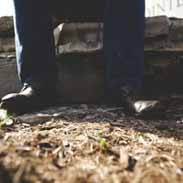Sociology 210 Introduction to Sociology
Unlock all answers in this set
Unlock answersquestion
*the study of human society. *Sociology, in the most general sense id the study of people in groups. *It is literally the scientific study of society and those within it.
answer
What is Sociology?
question
*Everything
answer
What do Sociologist study?
question
*sociological imagination- the ability to connect the most basic, intimate aspects of an individual's life to seemingly impersonal and remote historical forces.
answer
How do Sociologist study?
question
*A society is a group of people who share: *culture *territory ("social location")
answer
What is society?
question
*Region *Class *Gender *Education *Income Level
answer
Social Location
question
*What is science? *A systematic method of gaining and or obtaining knowledge that is obtained. *So..... YES, sociology is a science.
answer
Is Sociology really a science?
question
*2 main branches of science *Natural: Biology, Chemistry, Physics, etc..... *Social: Anthropology, Political Science, Economics, Psychology, and Sociology.
answer
The Sciences Natural vs. Social
question
*to EXPLAIN why something happened. *to GENERALIZE the results. *to PREDICT what will happen in the future.
answer
Goals of Science
question
*One of the main purposes of sociology is to KILL COMMON SENSE!!
answer
Adding a Scientific Goal
question
*The main precept behind sociology being a science is that it uses the scientific method. *It uses objective systematic operations.
answer
Scientific Method
question
*Sociology is founded, primarily on the work of only a handful of social scholars. *"Social Philosophy"
answer
Dead White Guys
question
*The father of Sociology. *Comte is arguably the "father" of the field of sociology. *Coined the term "sociology". *Positivism *Arm chair philosophy?
answer
Auguste Comte
question
*"Survival of the fittest". *Spencer used Darwinian theory to evaluate the social world. *social darwinism *survival of the fittest *social aid..... NO *charity.....NO
answer
Herbert Spencer
question
*The "Real" father of sociology *The first sociologist. *Looked at how societies hold together. *social integration *social solidarity *mechanical solidarity: feeling of likeness *organic solidarity: interdependence *social facts: just like biological facts **society is an organism containing parts that work together to ensure the survival of the whole.
answer
Emile Durkheim (DADDY)
question
*Invented and founded the idea of communism. *Marx is not the founder of Communism but communism. *class conflict *Bourgeoisie: rich people *Proletariat: have nots *Exploitation *Conflict is the driving force behind social change and is necessary for the continuation and renewal of society. **Rise up against Bourgeoisie and take back what is rightfully ours. *communism: everyone equal *Communism: dictatorship
answer
Karl Marx
question
*Focus of sociology should be individualized experiences within society. *Verstehen? *Ideal type: sociology is the study of the aggregate, not the individual, the ideal type allows us to take similar things and compile them for study. *Value Freedom
answer
Max Weber
question
*A founder of the NAACP *Conducted the first reliable sociological research on the south. *First person to receive PHD in sociology from Harvard University in the 1800's.
answer
W.E.B. DuBois
question
*The sociological imagination *C. Wright Mills term for seeing ourselves as being a part of and being effected by the societies (social structures) in which we live. *"People do what they do because of external social forces, not inherited traits".
answer
C. Wright Mills
question
*Construction of the "self" and self concept. *Reflexivity: makes us human ability to react and adapt
answer
George Herbert Mead
question
...
answer
3 Perspectives
question
*view society as a whole structure that is composed of interworking parts or pieces called institutes. *functions *dysfunctions *manifest *latent *consensus on norms
answer
Functionalist (Durkheim)
question
*Society is driven by dialectical conflict *power *scarce resources *Marx is the founder of the conflict theory *Weber is another
answer
Conflict (Marx, Weber)
question
*Society is composed of symbols *Symbols have meanings (that are dynamic) *Meanings are socially agreed upon (through shared interactions). *We respond to others and to our enviroment based on these meanings and we in turn construct our own realities. *reciprocal relationship between the individual and society. *Mead, Cooley, Goffman, Thomas, are four of the most prolific SI's.
answer
Symbolic Interactionist (SI) (Mead, Cooley, Goffman, Thomas)
question
*Perspective *Analysis *Society functionalist MACRO interacting pieces conflict MACRO competing interest symbolic interaction micro social interactions
answer
micro and MACRO
question
1. select a problem 2. review of the literature 3. forming a hypothesis: operationalization of the terms 4. select a research design: quantitative or qualitative 5. collect data: secondary or primary 6. analyze data 7. report your findings
answer
Basic Concepts of Sociological Research (scientific method)
question
*variable/constant *Types of variables *independent (x) *dependent (y)
answer
Other key terms in sociological inquiry
question
*Reliability: does our measure give us consistency? *Validity: does our measure assess what it is intended to assess?
answer
What sociologist look for in a Research Method
question
*Population: all the people that meet the criteria (scope.... characteristics) of your study *Sample: A small piece of the population in which you're interested.
answer
Population and Samples
question
*Researcher: doing the study *Researched: subject, participant, a.k.a. guinea pig
answer
Researcher and Researched
question
*correlation: what does it sound like it means *Types of correlations *positive correlation: same direction *negative correlation: opposite *spurious correlation:
answer
Correlation
question
*Regression
answer
How do we Predict the Future?
question
*Parts of experimental designs *Control Group *Treatment Group
answer
Experimental Designs
question
*Types of surveys *phone *interview *paper *computer *mail
answer
Survey
question
*Types of Observational Analyses *unobtrusive observation: unknown *participant observation:
answer
Observation



